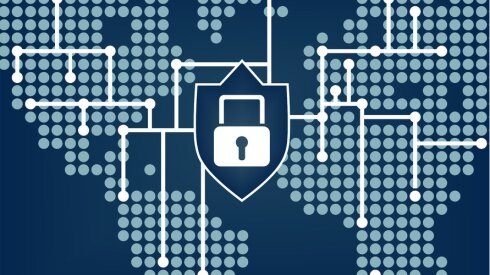-
State leaders prioritized AI advancement in 2025; CIO Alberto Gonzalez said it will help support being efficient and improved service delivery for residents. Onboarding staff has been greatly quickened.
-
What cyber trends and predictions are coming for 2026? Here’s your annual security industry prediction report roundup for the new year, highlighting insights from the top vendors, publications and thought leaders.
-
The myColorado app now lets ID verifiers like government agencies or businesses scan a QR code on a user’s digital ID to quickly determine its validity. Some 1.8 million of the state’s residents use the app.
More Stories
-
State and regional organizations have banded together to offer grants to seven business-higher education partnerships for programs involving cybersecurity, virtual modeling, software development and data analytics.
-
Washington lawmakers reacted with outrage after a report published by an internal Department of Veterans Affairs watchdog Friday confirmed a computer system at Spokane's VA hospital has caused nearly 150 cases of harm.
-
Dennis Rice, FBI special agent in charge of the Salt Lake City field office, says there have been 33 reports of ransomware in Idaho since 2018, with nearly $1 million paid to retrieve data encrypted by hackers.
-
The official Twitter account for the city of Wichita was hacked Friday evening and steps are being taken to secure the account, according to city officials. The unauthorized access appeared to have come out of Turkey.
-
Candidates running for Secretary of State in Washington state have said that they're most concerned about cybersecurity threats posed by other countries, online misinformation and election audits.
-
Chief Risk Officer Rob Main discusses balancing privacy and security, growing North Carolina's cyber workforce, and how his office is helping local governments build cyber capacity.
-
Institutions like the University of Scranton, Misericordia University and Luzerne County Community College are investing in high-demand fields such as supply chain management, data science and medical assisting.
-
The questions I am most often asked, both online and in person at conferences and other events, surround how people can break into the cybersecurity field for the first time.
-
The California Attorney General's Office confirmed Thursday that the OpenJustice web portal remains offline after a trove of personal data related to concealed weapons applicants was exposed in late June.
-
The Cyber Safety Review Board details 19 steps for public and private sector to improve the software security landscape and reduce risks from the Log4j vulnerability, something likely to trouble organizations for a decade or more.
-
As of July 1, state agencies are required to report certain cybersecurity incidents to the Virginia Fusion Intelligence Center. Officials hope the law will improve the response to attacks across the commonwealth.
-
A camp for sixth through eighth graders at the university's Ruth Patrick Science Education Center covers a range of topics from password and file protection to malware, hackers, coding and robotics.
-
Despite a growing divide between the Democratic and Republican parties, both sides of the aisle can agree on the need for reliable voting technology and protections from bad actors heading into the next election.
-
Louisiana’s new chief cyber officer, Dustin Glover, was the state’s previous CISO. He will head up partnerships between the state’s departments overseeing technology, emergency preparedness, military and police.
-
As affordable cyber insurance becomes more elusive, experts are reminding governments that insurance is only one piece of the puzzle and urging them to focus first on investing in cyber defenses.
-
After serving as St. Paul, Minn.’s CIO for more than four years, Sharon Kennedy Vickers has left the role to serve as a the CEO of Software for Good. The company develops web and mobile apps geared toward environment and social change.
-
The majority of the federal funds, around $11.2 billion, will go to the Defense Department, while $2.9 billion will go to the Cybersecurity and Infrastructure Security Agency to bolster U.S. cyber defenses.
-
The New York Department of Motor Vehicles is warning customers that a phishing scam is using text messages that promise $1,500 in state fuel rebates to steal personal information.





























